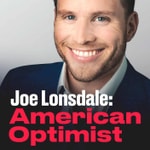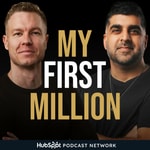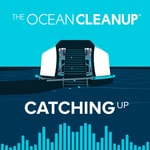Joe Lonsdale: American Optimist – Details, episodes & analysis
Podcast details
Technical and general information from the podcast's RSS feed.

Joe Lonsdale: American Optimist
Joe Lonsdale
Frequency: 1 episode/12d. Total Eps: 121

blog.joelonsdale.com
Recent rankings
Latest chart positions across Apple Podcasts and Spotify rankings.
Apple Podcasts
🇺🇸 USA - technology
28/07/2025#78🇨🇦 Canada - technology
27/07/2025#83🇺🇸 USA - technology
27/07/2025#82🇺🇸 USA - technology
26/07/2025#77🇺🇸 USA - technology
25/07/2025#71🇺🇸 USA - technology
24/07/2025#60🇨🇦 Canada - technology
23/07/2025#80🇺🇸 USA - technology
23/07/2025#56🇨🇦 Canada - technology
22/07/2025#90🇬🇧 Great Britain - technology
22/07/2025#75
Spotify
🇺🇸 USA - technology
12/07/2025#47↘🇺🇸 USA - technology
11/07/2025#45→🇺🇸 USA - technology
10/07/2025#45↗🇺🇸 USA - technology
09/07/2025#48↗🇺🇸 USA - technology
13/06/2025#48↗
Shared links between episodes and podcasts
Links found in episode descriptions and other podcasts that share them.
See all- https://waitbutwhy.com/
84 shares
- https://theoceancleanup.com/
38 shares
- https://twitter.com/micsolana
97 shares
- https://twitter.com/BasedBeffJezos
11 shares
- https://twitter.com/GillVerd
9 shares
RSS feed quality and score
Technical evaluation of the podcast's RSS feed quality and structure.
See allScore global : 53%
Publication history
Monthly episode publishing history over the past years.
Ep 95: Navy SEAL & Saronic CEO Dino Mavrookas on the Race for Autonomous Ships and Naval Dominance
jeudi 12 septembre 2024 • Duration 29:11
The U.S. Navy dominated in World War II, not because we had the most advanced ships, but because our industrial capacity was unmatched. When we lost a ship in battle, we could instantly replace it with two or three new ones. Our enemies couldn't keep pace. But today, our shipbuilding is a shell of its former self. In 1943, we built over 18,000 ships. Last year, we built eight (and retired 12). China, on the other hand, is producing hundreds of ships and now boasts 250 times the U.S. shipbuilding capacity!
How can the U.S. Navy maintain deterrence? One answer is autonomous surface vehicles (ASVs) and harnessing new possibilities in AI to field and simultaneously coordinate hundreds or thousands of unmanned vessels. That's why Dino Mavrookas and his team are building Saronic Technologies — the leading ASV manufacturer. Saronic is the only company engineering the hardware, software, and AI to create modular platforms that can be produced economically at scale. They currently offer three classes of vehicles that can be fitted with various sensors and weapons (including the possibility of torpedoes!).
Dino believes the push into unmanned, attritable systems is our generation's space race. He served 11 years as a Navy SEAL with eight combat tours before working as a private equity technology investor. He partnered with 8VC through its Build program to launch Saronic in 2022, and it has quickly become one of the fastest-growing defense technology companies. Saronic recently closed a $175 million Series B, making it the newest defense unicorn. Its advisors include former admirals and other naval leaders, and did we mention it's being built right here in Austin, Texas!
This is a public episode. If you would like to discuss this with other subscribers or get access to bonus episodes, visit blog.joelonsdale.com
Ep 94: A Conversation with Turnaround King & U.S. Commerce Secretary Wilbur Ross
vendredi 30 août 2024 • Duration 43:38
Wilbur Ross is one of the great turnaround artists in modern finance. Dubbed the "King of Bankruptcy," he restructured over $400 billion of assets, saving companies — and jobs — in distressed industries like steel, coal, and textiles. In 2016, he went to Washington as U.S. Commerce Secretary to take on a similar mission and defend American companies and workers in high-stakes trade negotiations, particularly with China.
We were privileged to host Wilbur for a conversation about his storied career and new book: “Risks and Returns: Creating Success in Business and Life." We began with his investment philosophy and how he reshaped Wall Street, including his close relationship with Mike Milken and the inception of leveraged buyouts. Wilbur also recalls going head-to-head with Donald Trump during the bankruptcy negotiations for the Taj Mahal Casino in Atlantic City, and explains how that interaction led him to become one of the first Wall Street leaders to support Trump's candidacy for president.
Next, we dive into his tenure as Commerce Secretary and the ongoing debates over U.S. trade policy. He shares his favorite Trump story — an early interaction with Chinese President Xi Jinping — as well as the accomplishments he's most proud of, like regulatory relief, and what he wishes the administration had done differently: act faster and more boldly! Wilbur is a patriot and leader we can all learn from, and hope you'll check out his new book.
This is a public episode. If you would like to discuss this with other subscribers or get access to bonus episodes, visit blog.joelonsdale.com
Ep 85: The Path to Regime Change in Iran with Crown Prince Reza Pahlavi
jeudi 18 avril 2024 • Duration 38:34
In 1979, Crown Prince of Iran Reza Pahlavi was attending fighter pilot school in Lubbock, Texas when the Islamic Revolution overthrew his father's reign. A radical theocracy seized power and began extinguishing freedoms, persecuting minorities, and taking a pro-Western Iran back to the Middle Ages. Since then, the Crown Prince has lived in exile as a leading voice for a secular and democratic Iran. What is his view of the Revolution? Why does he believe regime change is possible today? And how should the U.S. and the West deal with Iran?
Given Iran's recent attack on Israel, we get a rare and timely perspective on the power dynamics within Iran and why the current regime is more fragile than we realize. The Crown Prince paints a picture of his homeland pre-and-post Revolution, and explains why many governments misunderstand the fanatical leadership of Iran. He lays out his strategy of "maximum support" and how combining sanctions and external pressure with internal support, such as internet access and financial resources for protestors, could someday topple the regime. And if it does, he details a post-regime strategy to transition the government toward a secular democracy. We also discuss the longstanding history between the Persian and Jewish people, and how, with the right leadership, the region could once again become dynamic and prosperous.
[NOTE: this conversation was recorded shortly before Iran launched hundreds of missiles and drones at Israel.]
This is a public episode. If you would like to discuss this with other subscribers or get access to bonus episodes, visit blog.joelonsdale.com
Ep 84: Sri Ganesan on Freshworks' Big Win, Building Rocketlane & India's Tech Boom
jeudi 11 avril 2024 • Duration 30:02
India’s tech ecosystem has hit an indisputable inflection point in recent years. For decades, American corporations outsourced basic services to India, while India outsourced its top talent to Silicon Valley. But today, India’s tech economy boasts homegrown software giants and a flourishing startup scene.
This week, we get a front-row look into India’s startup evolution with one of its top talents: Sri Ganesan, Founder and CEO of Rocketlane. His first company, Konotor, was acquired into Freshworks, which went public in 2021 for $10 billion and became one of India's biggest wins. Now, Sri is building Rocketlane into a leading solution for SaaS deployment and professional services automation, with teams in the U.S. and India. By combining American know-how with Indian talent, Rocketlane represents an important dynamic for the future of tech and expanding key partnerships around the world.
In this episode, we dive into the lessons learned from Freshworks's success and how it paved the way for greater entrepreneurial risk within India. We also explore Sri's journey in scaling Rocketlane, from finding product-market fit to positioning the company to take advantage of the AI wave. We discuss what India’s rise to become one of the world's most important economies means for the future of tech and global talent distribution, along with the cultural differences between India and the US, and what it's like building on two continents simultaneously. Finally, Sri guides us through the various tech hubs in India, from Mumbai to Bangalore and Chennai, even down to his favorite restaurant and must-visit destinations for anyone heading to India soon.
This is a public episode. If you would like to discuss this with other subscribers or get access to bonus episodes, visit blog.joelonsdale.com
Ep 83: A New Cancer Breakthrough with Ivan Dimov of Orca Bio
vendredi 5 avril 2024 • Duration 32:16
Every year, more than 20,000 Americans receive a bone marrow transplant — a Nobel prize-winning procedure that saves many lives but also carries great risk. For leukemia patients, it's a choice of last resort, as nearly 20% die from the transplant. Ivan Dimov, co-founder & CEO of Orca Bio, and his team have created a novel cell therapy alternative that has already saved over 400 lives in clinical trials with virtually zero rejection!This week, we dive into Ivan's journey, the science behind Orca's cancer breakthrough, and the potential of cell therapies to cure a host of other diseases. By discovering new, high-precision methods to manipulate cells, Orca is able to provide leukemia patients with a designer immune system that attacks the cancer while nearly eliminating rejection. By safely rebooting the immune system, Ivan and his team believe Orca also has the potential to cure autoimmune diseases like Crohn’s disease and multiple sclerosis, and impact the lives of millions of Americans.Orca is currently seeking the first-ever FDA approval in this space, and since it's a unique one-time curative therapy, they are also commercializing the drug in-house — a rare move in biopharma. Ivan walks us through the path to bringing Orca's products to market, from collaborating with regulators to negotiating with insurance companies and scaling up its manufacturing. Though many challenges remain, you'll see why we're incredibly bullish on Ivan's leadership and Orca's potential to transform the future of medicine.
This is a public episode. If you would like to discuss this with other subscribers or get access to bonus episodes, visit blog.joelonsdale.com
Ep 82: Whitney Baker's Masterclass on Macro Investing & the State of the Economy
jeudi 21 mars 2024 • Duration 40:33
What are the forces behind the scenes that drive financial markets? How do bubbles form — and are we in one now? What do the world's best investors understand and how do they consistently come out ahead?
This week we dive into global finance with one of the sharpest minds in macro investing: Whitney Baker, Founder and Chief Investment Officer of Totem Macro. Whitney previously worked at two of the world's leading investment firms, first in global macro & long/short strategies at Soros Fund Management and most recently as the Head of Emerging Markets at Bridgewater Associates.
In this episode, Whitney lays out the principles behind macro investing and how credit flows, borrowing cycles, and monetary policy drive global finance. She traces our current-day situation back to the 1970s when President Nixon ditched the gold standard and opened trade with China. She explains how a new age of deficit spending combined with China entering the U.S. bond market paved the way for the dot com bubble, and ultimately where we are today. Whitney makes the case that inflation isn't going away soon and believes the Federal Reserve's actions over the past few decades have exacerbated inequality in America. Yet, despite these headwinds, Whitney believes technological progress can sustain the U.S. through these challenging times, so long as we set the right conditions for our best entrepreneurs to succeed.
Thanks for reading! Subscribe for free to receive new posts and podcasts.
This is a public episode. If you would like to discuss this with other subscribers or get access to bonus episodes, visit blog.joelonsdale.com
Ep 81: How Palantir Star Tyler Scriven Is Helping Small Businesses Compete Against Amazon
jeudi 14 mars 2024 • Duration 33:34
U.S. e-commerce sales eclipsed $1 trillion last year and are expected to double or triple over the next decade. As online demand increases, how can small businesses compete with retail giants like Amazon and Walmart? What capabilities do they need? And can a new model help level the playing field?
This week, we explore the future of logistics and e-commerce with Tyler Scriven, co-founder and CEO of Saltbox. Tyler was a star talent at Palantir for many years (his first job title was "Predictor and Crusher" on account of his ability to eliminate operational challenges) before applying his learnings to help entrepreneurs nationwide. He identified a key gap in the market: small businesses have great software tools, but need help in the physical world with supply chain and logistics to compete against large retailers with scale advantages. With a dozen locations in major metropolitan areas, Saltbox provides a unique co-warehousing model to elevate storage and shipping capabilities.
In this episode, we discuss Tyler's most important lessons from Palantir and how to cultivate a mission-driven culture. We cover his entrepreneurial journey from Palantir to acquiring his own small business and discovering the logistical shortcomings that Saltbox is designed to solve. We also talk leadership lessons and Tyler's compelling perspective on "courage for normal people."
This is a public episode. If you would like to discuss this with other subscribers or get access to bonus episodes, visit blog.joelonsdale.com
Ep 80: Leonard Leo's Winning Strategy to Rebuild Institutions, Accelerate Innovation, and Save Our Country
vendredi 8 mars 2024 • Duration 35:57
Leonard Leo is one of the most effective agents of legal and cultural change in America today. What's his playbook? How can we apply it to other broken areas of society? And why should the technology world be especially interested in his work?
In the mid-20th century, the U.S. judicial system took a sharp left turn, resulting in hyper-politicized courts, runaway bureaucracies, and many other distortions of our Constitutional system. Through his leadership of the Federalist Society, Leonard has led the charge to repair these broken institutions and, in the process, built arguably the most powerful legal network in the nation. He's been instrumental in the most important judicial elections and nominations of the past few decades.
Leonard's wisdom is especially relevant for my friends in the effective accelerationism (e/acc) movement — or anyone who values technological progress. Standing athwart innovation is the ever-expanding administrative state, and Leonard has spent decades fighting to rightsize government and restore the separation of powers. He explains why property rights, limited government, and decentralized power are the bulwark of innovation, and why technologists must also join the effort to rein in the regulatory state and defend these sacred Constitutional principles.
This is a public episode. If you would like to discuss this with other subscribers or get access to bonus episodes, visit blog.joelonsdale.com
Ep 79: Bjorn Lomborg and the 12 Best Policies to Help the World
jeudi 29 février 2024 • Duration 45:15
What are the single most effective policies for helping the world's poor? And what are we doing right now that's ineffective and should be stopped? The answers may surprise you.
In his latest book "Best Things First," Bjorn Lomborg reveals the 12 best solutions to address the most pressing global challenges. He gathered the world's top economists to analyze the policies that would do the most good for the least amount of money. It turns out the United Nations and others are getting it wrong — climate policies didn't make Bjorn's list!
In 2015, the UN released its Sustainable Development Goals — a mere 169 promises to achieve by 2030! Yet as Bjorn explains, these are largely virtue signaling or ineffective vows the UN will never make good on. Instead of overpromising or obsessing over climate change, Bjorn says the evidence points to 12 clear and measurable policy solutions: eliminating tuberculosis, investing in education the right way, and establishing clear land rights, to name a few.
Bjorn is the Founder and Director of the Copenhagen Consensus think tank and one of the world's most influential writers and thinkers. He's made a career challenging misguided narratives, especially on environmental issues, while fighting to restore sanity and fact-based policymaking. His arguments are a direct challenge to the alarmism and doomerism surrounding us today, which is why YouTube and others try to censor him!
This is a public episode. If you would like to discuss this with other subscribers or get access to bonus episodes, visit blog.joelonsdale.com
Ep 78: Emil Michael — the Master Dealmaker Behind Uber's Global Dominance
mercredi 14 février 2024 • Duration 40:27
By the summer of 2012, ride-sharing had arrived: Uber launched its everyman product, UberX, and Lyft debuted hot on its heels. Today, Lyft's market cap hovers around $5 billion while Uber's is north of $140 billion. How did Uber explode to global dominance? What was different about its culture? And how did it take on taxi cartels around the world and win?
This week, we go behind the scenes with Emil Michael, one of Silicon Valley's great operators and dealmakers. As the former Chief Business Officer, Emil helped Uber raise a record $15 billion in two years and led its expansion into the most difficult markets, including China, Russia, Saudi Arabia, and Italy. (Yes, Italy.) Emil recounts his biggest wins and toughest challenges, including how the Italian mafia threatened to kill Uber employees and why to this day ride-sharing is almost nonexistent in Italy.
Emil immigrated with his family to the U.S. from Egypt as a young child, and his success and character epitomize the American Dream. He graduated from Harvard, received his J.D. from Stanford Law, and began his entrepreneurial journey at TellMe, an early speech recognition company. He quickly became known for his dealmaking skills, including transforming a $300 million acquisition offer into a $800 million deal with Steve Ballmer and Microsoft. After TellMe, he served as a White House fellow at the Pentagon and spent time in Iraq and Afghanistan, before later joining Uber. We dive into his unique approach to high-stakes negotiations and lessons learned from his distinguished career.
This is a public episode. If you would like to discuss this with other subscribers or get access to bonus episodes, visit blog.joelonsdale.com









